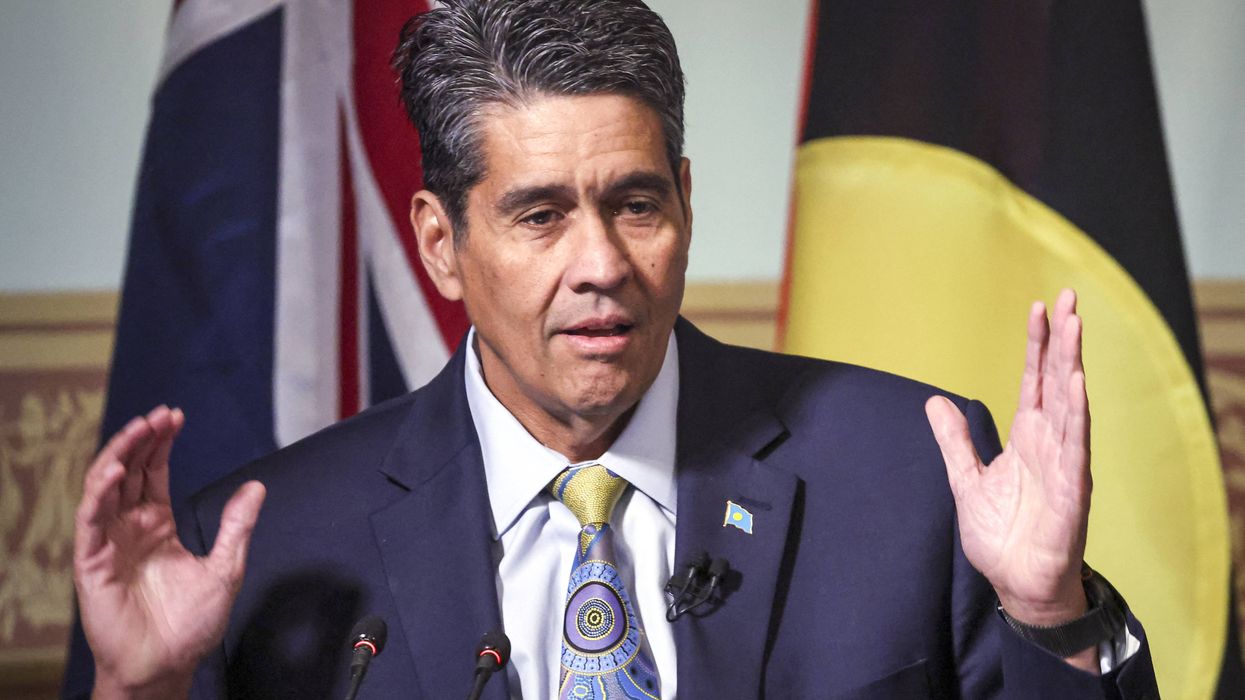April, 26 2010, 11:33am EDT
(Mis)Investment in Agriculture: The Role of the International Finance Corporation in the Global Land Grab
OAKLAND, Calif.
As a major two-day conference
on Land Policy & Administration, hosted by the World Bank, gets
under way to supposedly "improve land governance" and
"contribute to the well-being of the poorest," Oakland Institute's
new report, (Mis)Investment in Agriculture: The Role of the
International Finance Corporation in the Global Land Grab, exposes
the role of the Bank's private sector branch, International Finance
Corporation (IFC), in fueling land grabs, especially in Africa.
"Land grabs - the purchase or lease of vast tracts of land from
poor, developing countries by wealthier, food-insecure nations and
private investors - has led to the acquisition of nearly 50 million
hectares of farmland," said Shepard Daniel, Oakland Institute's
Fellow and author of the report. "While rising food prices, demand
for biofuels, and investors seeking quick returns have been emphasized
as the principal drivers of this trend, the role of the World Bank has
gone virtually unnoticed. (Mis)advice from IFC's Technical
Assistance and Advisory Services (TAAS) and Foreign Investment
Advisory Services (FIAS) to developing country governments to spur
foreign direct investment in agriculture has fueled the dangerous
trend of vast land deals in some of the world's most vulnerable
countries," she continued.
"Following the 2008 food and financial crises, World Bank was to
play a central role in what was intended to be a massive overhaul in
international food policy and a vast improvement to food security in
the developing world," said Anuradha Mittal, Executive Director of
the Oakland Institute. "Evidence, however, reveals that World Bank
Group policies and efforts are doing just the opposite. IFC has
actually increased the ability of foreign investors to acquire land in
developing country markets. It is promoting "products" - such as
the 'Access to Land' and the 'Land Market for Investment'
whose purpose is to open land access to investors. Further more the
creation of "investment promotion agencies" and rewriting of
national laws, has provided the institutional back up for such
investments. In doing so, it has overlooked the urgent problem of
hunger that persists in client countries, and lost sight of its
principle mission, which is to alleviate poverty," she
continued.
For instance, in Ethiopia, IFC's recommended changes to policy and
legislature have completely transformed the landscape of Ethiopian
investment climate. Accordingly, huge investments in land market have
followed. "Ethiopia is one of the hungriest countries in the world
with more than 13 million people in need of food aid," said Daniel,
"but paradoxically the government has already offered at least 7.5
million acres of its most fertile land to rich countries and some of
the world's most wealthy individuals to export food back to their own
countries."
(Mis)Investment in Agriculture
concludes that the promotion of investor access into developing
country land markets threatens local food security, displaces local
populations, and therefore operates in direct violation of IFC's
Performance Standards as well as several UN Human Rights Conventions.
The Report contends that it is crucial that IFC be investigated and
held accountable for the land grabs promoted by its technical
assistance and advisory services. World Bank's current practices
that promote land grabs must be stopped in order to protect the food
security and livelihoods of the world's most vulnerable
populations.
(Mis)Investment in Agriculture: The Role
of the International Finance Corporation in the Global Land Grab,
is a is a publication of the Oakland Institute
(www.oaklandinstitute.org),
an independent policy think tank whose
mission is to increase public participation and promote fair debate on
critical social, economic, and environmental issues.
To Download a Copy of the
Report, Click Here.
(www.oaklandinstitute.org)
For more information or to speak to the author(s), please
contact Anuradha Mittal (510) 469-5228;
amittal@oaklandinstitute.org
The Oakland Institute is a policy think tank whose mission is to increase public participation and promote fair debate on critical social, economic and environmental issues in both national and international forums.
LATEST NEWS
'Unhinged' Trump Wishes 'Merry Christmas to All, Including the Radical Left Scum'
"Nothing more Christian than to be a hateful wretched fuck on Jesus’ birthday," quipped one critic.
Dec 25, 2025
In a message called typically on-brand by observers, US President Donald Trump wished "Merry Christmas to all"—including his political opponents, whom he described in decidedly unchristlike language.
"Merry Christmas to all, including the Radical Left Scum that is doing everything possible to destroy our Country, but are failing badly," Trump said Christmas Eve on his Truth Social network.
"We no longer have Open Borders, Men in Women’s Sports, Transgender for Everyone, or Weak Law Enforcement," the president added. "What we do have is a Record Stock Market and 401K’s, Lowest Crime numbers in decades, No Inflation, and yesterday, a 4.3 GDP, two points better than expected. Tariffs have given us Trillions of Dollars in Growth and Prosperity, and the strongest National Security we have ever had. We are respected again, perhaps like never before. God Bless America!!!"
While nothing new—Trump has used past Christmas messages to tell people he doesn't like to "go to hell" and "rot in hell"—observers, including some MAGA supporters, were still left shaking their heads.
"Radical Left Scum" 😂🤣😂🤣😂🤣Christmas greetings from a liar, traitor, pedophile, and overall shitstain upon society.
[image or embed]
— Bill Madden (@maddenifico.bsky.social) December 24, 2025 at 9:00 PM
"Nothing more Christian than to be a hateful wretched fuck on Jesus’ birthday!" liberal political commentator Dean Withers said on X.
Another popular X account posted: "A sitting president of the United States using Christmas Day to spew venom at fellow Americans he calls 'Radical Left Scum' isn’t just unpresidential—it’s unhinged, un-Christian, and utterly beneath the office."
"This is the behavior of a bitter, small man who can’t even pretend to unify for one holy day," she added. "Shameful. Disgraceful. Pathetic."
Keep ReadingShow Less
Palau Signs Controversial $7.5 Million Deal to Take 75 Trump Deportees
"What if we spent the $100,000 per person in America setting them up with housing assistance, healthcare, education, etc?" asked one critic.
Dec 25, 2025
Palau said Wednesday that it has agreed to take in up to 75 people deported from the United States during President Donald Trump's purge of unauthorized immigrants in exchange for millions of dollars in financial assistance—a move that has sparked considerable opposition among the Pacific archipelago nation's roughly 18,000 inhabitants.
The office of Palauan President Surangel Whipps Jr. announced a memorandum of understanding with the United States under which the country will receive $7.5 million in assistance in exchange for taking in 75 third-country deportees who cannot be repatriated to their countries of origin.
Earlier this week, US State Department Principal Deputy Spokesperson Tommy Pigott said the people who will be sent to Palau have “no known criminal histories," as is the case with the vast majority of unauthorized immigrants in the United States, who have committed no crime other than the mere misdemeanor of entering the country illegally.
However, Palauans have voiced concerns over US Secretary of State Marco Rubio's remarks during a Cabinet meeting earlier this year in which he said that, “We want to send some of the most despicable human beings—perverts, pedophiles, and child rapists—to your countries as a favor to us."
Whipps said Wednesday that the relocation plan involves “people seeking safety and stability."
“These are not criminals,” the president said during earlier debate on the proposal. “Their only offense was entering the United States illegally and working without proper permits.”
However, Palau's Congress and its influential Council of Chiefs have twice rejected the transfers.
Piggot's statement "highlighted US commitments to partner with Palau on strengthening the country’s healthcare infrastructure, increasing Palau’s capacity to combat transnational crime and drug trafficking, and bolstering Palau’s civil service pension system."
Palau, which was administered by the US from 1947-94 and is now associated with the United States under the 1994 Compact of Free Association, which guaranteed the country nearly $900 million economic aid over 20 years in exchange for exclusive US military access.
The country's foreign policy often tracks closely to that of the US. For example, Palau is sometimes among the handful of usually similarly small nations that vote along with the United States and Israel against United Nations resolutions condemning Israeli crimes or affirming Palestinian rights.
Other developing nations including Eswatini, Rwanda, South Sudan, and Uganda have also agreed to take in US deportees or are considering doing so.
Reactions to the US-Palau agreement drew criticism on social media, where one X user called the deal a "bribe" and another popular Bluesky account asked, "What if we spent the $100,000 per person in America setting them up with housing assistance, healthcare, education, etc?"
Keep ReadingShow Less
Trump 'Choosing From the War Crimes Menu' With 'Quarantine' on Venezuela Oil Exports
"Economic strangulation is warfare and civilians always pay the price," lamented CodePink.
Dec 25, 2025
President Donald Trump has ordered US military forces to further escalate their aggression against Venezuela by enforcing a "quarantine" on the South American nation's oil—by far its main export—in what one peace group called an attempted act of "economic strangulation."
"While military options still exist, the focus is to first use economic pressure by enforcing sanctions to reach the outcome the White House is looking [for]," a US official, who spoke on condition of anonymity, told Reuters.
The move follows the deployment of an armada of US warships and thousands of troops to the region, threats to invade Venezuela, oil tanker seizures off the Venezuelan coast, Trump's authorization of covert CIA action against the socialist government of Venezuelan President Nicolás Maduro, and airstrikes against boats allegedly running drugs in the Caribbean Sea and Pacific Ocean that have killed more than 100 people in what critics say are murders and likely war crimes.
This, atop existing economic sanctions that experts say have killed tens of thousands of Venezuelans since they were first imposed during the first Trump administration in 2017.
"The efforts so far have put tremendous pressure on Maduro, and the belief is that by late January, Venezuela will be facing an economic calamity unless it agrees to make significant concessions to the US," the official told Reuters.
The official's use of the word "quarantine" evoked the 1962 Cuban Missile Crisis, an existential standoff that occurred after the John F. Kennedy administration imposed a naval blockade around Cuba to prevent Soviet nuclear missiles from being deployed on the island, even as the US was surrounding the Soviet Union with nuclear weapons.
"This is an illegal blockade," the women-led peace group CodePink said in response to the Reuters report. "Calling it a 'quarantine' doesn’t change the reality. The US regime is using hunger as a weapon of war to force regime change in Venezuela. Economic strangulation is warfare and civilians always pay the price. The US is a regime of terror."
Critics have also compared Trump's aggression to the George W. Bush administration's buildup to the invasion and occupation of Iraq, initially referred to as Operation Iraqi Liberation (OIL). But unlike Bush, Trump—who derided Bush for not seizing Iraq's petroleum resources as spoils of war—has openly acknowledged his desire to take Venezuela's oil.
"Maybe we will sell it, maybe we will keep it,” he Trump said on Monday. “Maybe we’ll use it in the strategic reserves. We’re keeping the ships also.”
On Wednesday, a panel of United Nations experts said that the US blockade and boat strikes constitute "illegal armed aggression" against Venezuela.
Multiple efforts by US lawmakers—mostly Democrats, but also a handful of anti-war Republicans—to pass a war powers resolution blocking the Trump administration from bombing boats or attacking Venezuela have failed.
The blockade and vessel seizures have paralyzed Venezuela's oil exports. Ports are clogged with full tankers whose operators are fearful of entering international waters. Venezuela-bound tankers have also turned back for fear of seizure. Although Venezuelan military vessels are accompanying tankers, the escorts stop once the ships reach international waters.
According to the New York Times, Venezuela is considering putting armed troops aboard tankers bound for China, which, along with Russia, has pledged its support—but little more—for Caracas.
Keep ReadingShow Less
Most Popular


